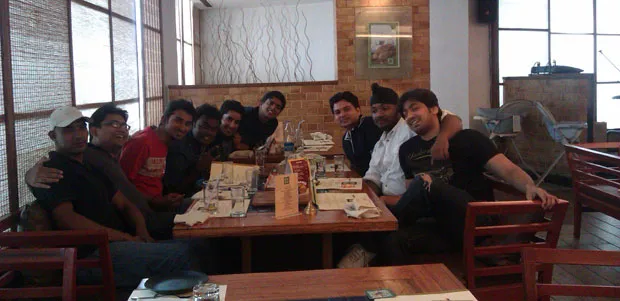Naman Sarawagi’s ‘startup-filled’ journey to FindYogi

Naman Sawawagi is a computer science graduate whose life has been full of startups. Starting his career with Freecharge in 2010, Naman gained first-hand experience of working at a technology startup and learnt some of the nitty-gritties of the trade while managing product and marketing. He then moved on to writing for a while when he covered and reviewed Indian startups. While doing these things, Naman heard about some folks in Bangalore building a business around missed calls (something which had been on his mind since college)“But that idea never saw the light of the day. So, when I heard about ZipDial, I wanted to work for them,” says Naman. He took up the offer and was the product manager there for a close two years. Having been in the tech space all this while, Naman always fiddled on his own products and while at ZipDial he caught on the whole opportunity with gadget prices.
“I was barely a month into it and realized there is a huge need for tools to help in shopping decisions; price comparison engines had huge traffic but they were solving the problem only partially. That is when I started pursuing FindYogi, with more than just money in mind,” says Naman and hence was born FindYogi.
FindYogi is all about reducing the customer’s pain to make tough choices before buying. The first launch in December last year was a bare structure and now FindYogi has overhauled the design and added three major elements which Naman explains:
a. Publishing complete set of features and prices from different sellers. This sounds very trivial but most ecommerce companies in India do not have so much detail and accuracy. This is a completely manual process.
b. Quantify every product based on different features. We provide a Feature Score, a score out of 100, to every product. This is calculated taking into account all the specifications of the product as compared to maximum of that available in market.
c. Quantify Value for Money. We have introduced FindYogi Index, a rating out of 5, that tells you if a product is worth buying at its current market price. This a completely automated feature that takes into account all the products, and their prices, of that particular category into account. We do not currently account for brand perception and novelty of the product.

A 10 member team as of now, FindYogi has seen its fair share of struggles that each startup has to face. Ankit Govil, one of the co-founders had to move out (these are normal things in a startup) but Naman is determined to make the company work. “The game is ever evolving. I believe we are only seeing the beginning of web as information medium, especially in India,” says an optimistic Naman.
Depending on ads and affiliates for revenues, FindYogi in is competing with ecommerce sites, price comparison engines and gadget blogs. There are ther price comparison engines like PriceBaba, MySmartPrice, PricePaaji, etc. “It will take us atleast another 12-18 months to create a mark in industry but we’re going out all guns blazing now,” adds Naman.
A startup is always in the process of raising funds and so is FindYogi. “Personally, I have grown a lot. I believe I have learnt more in the past 8 months as an entrepreneur than 3 years of working with startups and writing about them,” says Naman. He shares two of the major changes he has seen as an entrepreneur:
a. Ability to handle stress – As an entrepreneur, one tries to handle multiple things at once, inviting a lot stress from all ends. I think stress is just routine now. I panic less about developments that seem like a major game changer in the first look.
b. Ability to appreciate efforts – I have become less critical about other’s work/product and more critical about my own. With a deeper insight into what goes behind every little change in organization and product, I have learned to appreciate when I see a change, even if it is small.
FindYogi is a promising venture with a toiling team behind it. As a product, they want to reduce buyer’s remorse while from a business point of view, they want to influence decisions that involve spending money and in turn make some money from it. It has been an arduous fun-filled ride for Naman till now and is going to remain the same for the near future. And that’s also probably why people become entrepreneurs.







